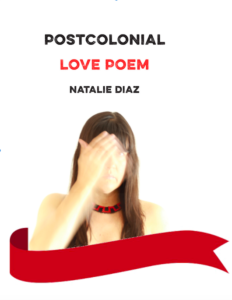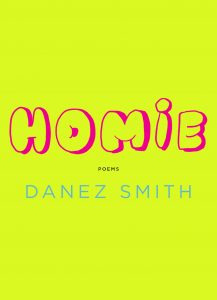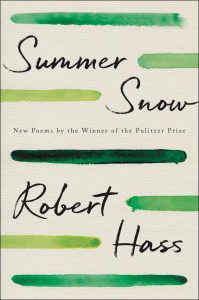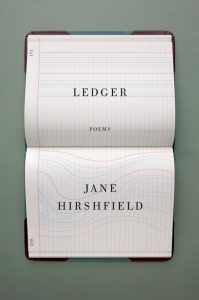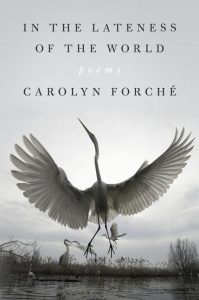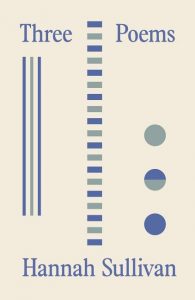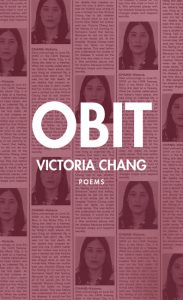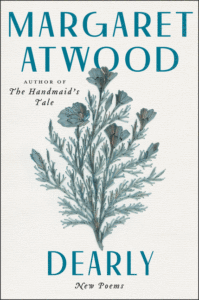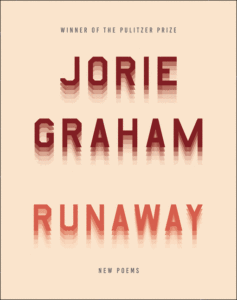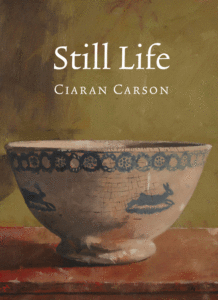
The Best Reviewed Poetry
Collections of 2020
Featuring Natalie Diaz, Danez Smith, Jorie Graham, Margaret Atwood, Robert Hass, and more
Natalie Diaz’s Postcolonial Love Poem, Danez Smith’s Homie, Jorie Graham’s Runaway, and Margaret Atwood’s Dearly all feature among the best reviewed poetry collections of 2020.
Brought to you by Book Marks, Lit Hub’s “Rotten Tomatoes for books.”
*
1. Postcolonial Love Poem by Natalie Diaz
(Graywolf)
17 Rave • 2 Positive
Read a poem from Postcolonial Love Poem here
“Violence against Indigenous people is not just historical but ongoing, systemic and institutional, Diaz reminds us … This knowledge, however fraught, emboldens Diaz to celebrate her survival as a queer Aha Makhav woman living in the 21st century … the book rejects stereotypes that cast Indigenous people as monocultural … Postcolonial Love Poem is charged by the often violent intersection of colonizing languages (in this case, first Spanish and then English) with an Indigenous one (Mojave). That’s not to say the poems long for a pre-colonial culture … There is an extreme lushness to the language Diaz uses, especially about love, sex and desire … This book asks us to read the world carefully, knowing that not everything will be translated for us, knowing that it is made up of pluralities … Diaz’s collection is no doubt one of the most important poetry releases in years, one to applaud for its considerable demonstration of skill, its resistance to dominant perspectives and its light wrought of desire.”
–Emma Phillips (The New York Times Book Review)
2. Homie by Danez Smith
(Graywolf)
11 Rave • 2 Positive
Listen to an interview with Danez Smith here
“…by hiding the real name of the book, Smith only makes it available to those who take the time to read it. If the poetry were less earnest, this could come off as a gag—just another conceptual stunt. But the writer’s commitment to making black life visible while simultaneously expanding blackness’s scope when people are looking imbues this title with a different weight … In its plainspoken yet voluminous vocabulary, its full-scale embrace of the body, and its ecstatic rendering of everyday life, Smith’s distinctive song of the self inevitably recalls Whitman … Smith’s writing presents an identity tempered by a society that is slow to administer acceptance. Smith is a poet of profound abundance and empathy, and in this collection the moments that stay with you the longest are the ones that reflect on abandoning the socialization of a prolifically cruel world.”
–J. Howard Rosier (4Columns)
3. Summer Snow by Robert Hass
(Ecco)
8 Rave • 5 Positive
“It’s a big book, but never feels exhaustive or overstuffed. Some may find that Hass has grown too comfy in his effusive style and his old lefty politics but to me it all sounds like mastery, like singular virtuosity attained on a very popular instrument—common American speech … Summer Snow is rife with elegies. It’s something of a Who’s Who of great writers who have died in recent decades … The unthinking cruelty of fate is too vast and unfathomable to summarize or explain, so Hass just sits with it with us, aghast, stumped and sad, but also unwilling to leave us behind or be left alone with all that weight … Yes, life is a breath, and what kills us is never actually what kills us, and the fabric of our days dissolves, leaving only paltry lists of achievements … Of course I had no idea what Hass was talking about when I was 20, no idea that he had anything to offer me. But he does now, and when I return to this book in 20 years, or in 40 if I’m so lucky, it will still be waiting for me, with something new to say.”
–Craig Morgan Teicher (The New York Times Book Review)
3. Ledger by Jane Hirshfield
(Knopf)
8 Rave • 5 Positive
Listen to an interview with Jane Hirshfield here
“Granted, some poems are thorny, difficult tangles requiring significant work from the reader to comprehend. But some, like the ones in Jane Hirshfield’s new book…are small gifts: morsels of meaning that slide right past your poetry defenses and lodge in your head … it’s a measured approach, calm and contemplative … Hirshfield’s poems treat the natural world as something marvelous and rare, something to be cared for and loved … This is what Hirshfield does so well: She gives you the observation of life as we’re all living it and the personal tragedy life entails, and then she slips in themes of planetary crisis. It’s the kind of gut punch good poems provide, the solid fist inside the velvet glove … She is responsible with every word choice, every line a deliberate beat, each poem its own chrysalis of meaning … This is a book to read front to back, then at random, then front to back again … Hirshfield’s poems are no less rich for being generally likable and accessible. You don’t have to love poetry to love these poems. There is no secret key required to unlock them. They speak and we all hear them loud and clear.”
–Elizabeth Crane (Vox)
5. In the Lateness of the World by Carolyn Forché
(Penguin)
7 Rave • 3 Positive
Read two poems from In the Lateness of the World here
“In order to understand what Forché is doing on the page, you have to look between the rows of type, and see what she leaves in the white space of your imagination. You have to rejigger, if not jettison entirely, your ideas or preconceptions about political writing and about what makes a poem. Forché’s stately stanzas—her writing is never hurried—are the work of a literary reporter, Gloria Emerson as filtered through the eyes of Elizabeth Bishop or Grace Paley. Free of jingoism but not of moral gravity, Forché’s work questions—when it does question—how to be or to become a thinking, caring, communicating adult … In In the Lateness of the World, one feels the poet cresting a wave—a new wave that will crash onto new lands and unexplored territories. To read the book straight through is to see connections between her earlier work and her new poems because, by looking at the world, she has made a world, one in which her past is as present as her future … as much as life takes, it gives, including the poet’s voice and its myriad possibilities, among them how to render silence.”
–Hilton Als (The New Yorker)
6. Three Poems by Hannah Sullivan
(FSG)
4 Rave • 5 Positive
Read a poem from Three Poems here
“Sullivan’s voice has a suppleness that canters within the formal constraints she imposes on it … she can be mischievous in her rhyming … At times it feels like it’s overreaching, taking in philosophical discussions of nothingness and Shelley’s ars poetica; but…it is always pulled back by Sullivan’s astonishing capacity for the seen, the telling analogy, or visual set-piece … Sullivan’s choice of register is one of her main assets … chatty and offhanded, while evoking both spring’s excess and a certain insubstantiality. She’s an exquisite image-maker and analogist … Sullivan never forgets to bring her celestial concerns down to the human scale.”
–Declan Ryan (The New York Review of Books)
7. Obit by Victoria Chang
(Copper Canyon Press)
3 Rave • 6 Positive • 1 Mixed
Read a poem from Obit here
“… remarkable … these obits take the genre in an entirely new direction—Chang inverts the impersonal third person perspective, creating a reliable/unreliable first-person speaker who mourns and commemorates the death of a variety of ideas, objects, emotions, and people … We know we are in the hands of a master. Restrictions in form can often lead to aesthetic and thematic liberation, and I was wholly engrossed by how much Chang accomplishes within the confines of the obituary’s obituary-ness—whether it’s the intense justified verticality to the use of dates, to the mix of objective and subjective intelligence … That these poems do such complete work with so few tools from the poetry toolbox is humbling. Each poem is a masterwork of compression and compassion … One of the many marvelous accomplishments of this book is how Chang makes private mourning and public mourning part of the same process.”
–Dean Radar (The Kenyon Review)
8. Dearly by Margaret Atwood
(Ecco)
6 Rave • 1 Mixed
Read a poem from Dearly here
“This collection of poems, her first in over 10 years, is a reckoning with the past that comes from a place of wisdom and control. Now 81, she harnesses the experience of a lifetime to assume a wry distance from her subjects—as if, in an astounding world, nothing could throw her off balance. This mastery, even at her most subversively fantastical, is part of what makes her an outstanding novelist. But poetry is different. Atwood is an undeceived poet and, even though the collection is full of pleasures, reading her work makes one consider the extent to which poetry is not only about truth but about the importance of being, at times, mercifully deceived—what Robert Lowell dubbed the ‘sanity of self-deception’.”
–Kate Kellaway (The Observer)
9. Runaway by Jorie Graham
(Ecco)
6 Rave • 1 Positive • 1 Pan
“She knows how to get your attention. As you move through the book…poems like ‘I’m Reading Your Mind’ and ‘Rail’ dare you not to get pulled into their riptides. From its opening page until its final lines, Graham’s 15th collection of poetry has the heightened urgency of a young writer’s debut. True to its title, it hurtles forward. Poems pour forth, frothing and pooling and threatening, at times, to overflow their banks … Runaway taps into a free-floating end-of-the-worldness (is there a German word for that?) that so many of us feel even if we can’t express it … Runaway feels as though it has been written for right now, especially as we find ourselves in the midst of a pandemic, but also for a target audience that might emerge 100 years on. You imagine someone in the future flipping through it, finding a record of a great unraveling, and spending hours trying to decipher it … the churn of Graham’s language settles into a benediction that couldn’t be clearer[.]”
–Jeff Gordinier (The New York Times Book Review)
10. Still Life by Ciaran Carson
(Wake Forest University Press)
4 Rave • 2 Positive
“Still Life is a book written in full cognizance of the approach of death, and as such cannot help but wear a testamentary air. Yet freshness and surprise are central to its success … With Still Life, Carson has achieved the remarkable feat of closing his oeuvre with a book that recapitulates his previous creative chapters, while at the same time striking out in a new direction. It emerges from a lifelong passion for art, and a deep engagement with other ekphrastic poems across the Irish, British, American and French traditions … In the even-tempered poems of Still Life it is, perhaps surprisingly, flourishes of despair that are in short supply … An unexpected central role in Still Life goes to the vintage onyx pencil used by Carson to write his poems. Like Beckett’s Malone, Carson will often move between descriptions of his everyday routines and descriptions of the pencil as it commits them to paper. Sometimes, again in Beckettian style, this throws up narrative paradoxes, as when a poem in the present tense describes the breaking of a pencil nib, but the poem presses on regardless … Still Life is among Carson’s very best work, and anglophone poetry is immeasurably the poorer for his passing.”
–David Wheatly (The Times Literary Supplement)
*
The Book Marks System:
RAVE = 5 points • POSITIVE = 3 points • MIXED = 1 point • PAN = -5 points
Book Marks
Visit Book Marks, Lit Hub's home for book reviews, at https://bookmarks.reviews/ or on social media at @bookmarksreads.










